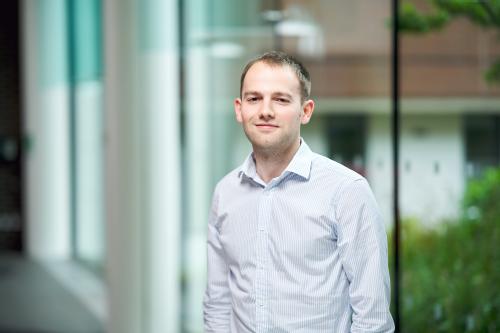Computer Science News
Dr Long Tran-Thanh Awarded Funding and Support from Google's AI for Social Good Program
We are delighted to announce that Dr Long Tran-Thanh has been awarded funding and support from Google’s AI for Social Good program.
The program focusses on using AI to address some of the world’s biggest societal challenges. Dr. Tran-Thanh’s project, titled Incentive Engineering and Truthful Mechanisms for Grassland Quality and Local Market Price Estimation in Africa, will address the problem of holistic grazing and pasture management in East Africa. The main objectives of the project are: (i) to identify the most efficient ways to evaluate the overall quality of different grazing areas; (ii) to develop a user friendly recommendation system that chooses the next best grazing areas for pastoralists, that takes into account the holistic aspect of pasture management; and (iii) to incentivise pastoralists to truthfully report their activities in order to further improve the system’s predictive ability. The project is a collaboration between the University of Warwick and AfriScout.
Promotions for two academic colleagues

 We are delighted to report that Dr Greg Watson and Dr Lin Gui have been promoted to, respectively, Senior Teaching Fellow and Senior Research Fellow, effective from 1 August 2021. Quoting from their recommendations,
We are delighted to report that Dr Greg Watson and Dr Lin Gui have been promoted to, respectively, Senior Teaching Fellow and Senior Research Fellow, effective from 1 August 2021. Quoting from their recommendations,
What particularly stands out ... is the virtuous circle of (1) Dr Watson’s continual striving for advancing his teaching expertise, evidenced by the extensive courses he has both attended and contributed to, (2) the strong two-way links between Dr Watson’s development and his teaching practice (and that of his peers), evidenced by the various different changes and improvements that he introduced in the classroom based on his scholarly educational investigations, and (3) the consistent very positive feedback from different groups of students as well as colleagues.
and
Dr Lin Gui is one of the most successful postdoctoral researchers in the recent history of the Department, and is continuing his research career with us after a prestigious two-year Marie Curie fellowship. He has been building a solid and high-flying international reputation, underpinned by an impressive trajectory of high-quality publications. Dr Gui’s initiative and emerging independence are in particular reflected in his contributions to substantial successful funding proposals.
it remains to say many congratulations!
EPSRC funding awarded to Prof. Yulan He and Prof. Rob Procter on developing an AI solution for tackling “infodemic”
Prof. Yulan He and Prof. Rob Procter have been awarded funding from the EPSRC under the UKRI’s COVID-19 call. During the COVID-19 pandemic, national and international organisations are using social media and online platforms to communicate information about the virus to the public. However, propagation of misinformation has also become prevalent. This can strongly influence human behaviour and negatively impact public health interventions, so it is vital to detect misinformation in a timely manner. This project aims to develop machine learning algorithms for automatic collection of external evidence relating to COVID-19 and assessment of veracity of claims.
The project is in collaboration with Prof. Maria Liakata and Dr. Arkaitz Zubiaga from the Queen Mary University of London.
Prof. Nasir Rajpoot awarded funding by Cancer Research UK to use machine learning to improve the early detection of oral cancer
Cancer Research UK is funding a study to examine the use of machine learning to assist pathologists and improve the early detection of oral cancer.
We are very excited to work on this project with Dr Khurram and his team at Sheffield. Early detection of cancer is a key focus area of research in our lab and this award by CRUK adds to the portfolio of research at the TIA lab on early detection of cancer.
The pilot project will pave the way towards the development of a tool that can help identify pre-malignant changes in oral dysplasia, crucial for the early detection of oral cancer. Successful completion of this project carries significant potential for saving lives and improving patient healthcare provision. -- Professor Nasir Rajpoot
The research is led by Dr Ali Khurram at the University of Sheffield with Professor Nasir Rajpoot from the University of Warwick as the co-Principal Investigator. Other co-investigators and collaborators include Professor Hisham Mehanna and Dr Paul Navkivell from the University of Birmingham and Dr Jacqueline James from Queen’s University Belfast.
WM5G funding awarded to Prof. Hakan Ferhatosmanoglu on machine learning based spatio-temporal forecasting
Warwick's Department of Computer Science has been awarded a new research grant to develop a machine learning solution for dynamic forecasting of available capacity on road networks. The developed software is planned to be integrated within the TfWM's Regional Transport Coordination Centre for adaptive route planning and traffic management mitigation against disruptions, incidents and roadworks.
The “5G Enabled Dynamic Network Capacity Manager” project is in collaboration with commercial partners, Blacc, Immense, one.network, and O2. The team has won the WM5G’s transport competition to leverage 5G networks for near real-time AI based modelling.
Prof. Hakan Ferhatosmanoglu is leading the development of the scalable ML solution to forecast residual capacities in a dynamic spatio-temporal graph. The solution is designed to benefit from high-granular and low-latency data feeds from 5G cellular and sensor data enabling congestion to be accurately monitored, modelled, and predicted.
Adam Shephard joins the TIA lab

Adam Shephard has just joined the department as a Research Fellow and is currently working in the Tissue Image Analytics (TIA) Lab on the ANTICIPATE project funded by Cancer Research UK. He has recently submitted his thesis on the application of deep learning to paediatric MRI at Aston University, under the supervision of Prof. Amanda Wood and Dr. Jan Novak. His role in the ANTICIPATE project will be concerned with the development and application of deep learning techniques to digitized histology slides to aid in the more efficient grading of head and neck tumours, to ultimately provide more accurate patient prognoses.
Exoplanet Validation with Machine Learning: 50 new validated Kepler planets
Dr Theo Damoulas (Department of Computer Science) along with Dr David Armstrong (Department of Physics) and Jevgenij Gamper (Department of Mathematics) have developed probabilistic machine learning algorithms that can separate out real planets from fake ones in the large samples of thousands of candidates found by telescope missions such as NASA’s Kepler and TESS. The results of which have led to fifty new confirmed planets, the first to be not only ranked but also probabilistically validated by machine learning.
The paper "Exoplanet Validation with Machine Learning: 50 new validated Kepler planets" has been accepted to the Monthly Notice of the Royal Astronomical Society, DOI: 10.1093/mnras/staa2498
